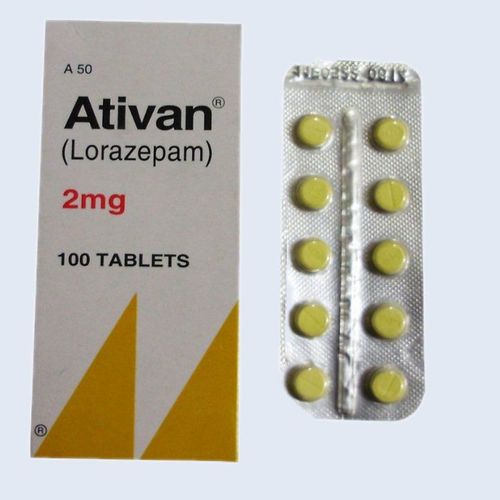This is an automatically translated article.
Many people have wondered, "Why am I always tired?" Or maybe you just don't have the energy to get things done the way you used to. Fatigue and lack of energy are a big problem for many people, but these problems can only be solved if you know what is wrong.
1. What is fatigue?
One of the most common complaints that doctors often hear from their patients is: “I always feel tired and don't know why”. In most cases, fatigue is the first reason that makes a person think of going to the doctor and it is also one of the symptoms for the doctor to examine, take a medical history or health problems. encountered by the patient.
Many patients think that fatigue is the feeling of being sleepy, lethargic and not wanting to do anything, but in fact, fatigue describes a state of lack of energy and motivation in daily life as well as in work that even the The patient does not feel sleepy even though both can occur at the same time.
It is necessary to determine whether the fatigue is mental, physical, or both. The causes of fatigue are shrinking, but overall it is still one of the top reasons why patients seek medical attention.
Some questions the doctor may ask to take a patient's history related to fatigue include:
Fatigue comes on suddenly or gradually Taking a history of type 1 diabetes and Type 2 diabetes, thyroid-related conditions or health problems related to the patient and family members Take a recent medical history: such as influenza, mononucleosis, illness virus ... Take an epidemiological history such as recent travel, recent contacts History of asthma , chronic obstructive pulmonary disease , heart failure or related illnesses coronary artery

Người có bệnh lý suy tim có thể sẽ gặp tình trạng mệt mỏi thường xuyên
History of surgery Dosage and frequency of current medications Results of recent laboratory tests (if available) Answers to the above questions may provide clues to the diagnosis. diagnose the patient's health condition. They can stem from a number of underlying causes such as:
Metabolic problems such as diabetes, anemia, malnutrition, chronic lack of energy.... Disorders related diseases Hormonal disorders Infections like pneumonia, malaria, hepatitis, tuberculosis... Cardiovascular or lung problems In many cases, fatigue can also be a warning sign of other health problems. dangerous diseases such as cancer or autoimmune diseases
2. Why are you always tired?
If fatigue persists and shows no signs of stopping, the first thing to do is to go to medical facilities to be examined by a doctor. The patient will be given a careful history and examination or ordered to do the necessary tests to determine the cause of this fatigue.
Some of the main reasons that can answer the question “Why am I always tired” include:
Not getting enough sleep: Not getting enough sleep or lack of sleep is the leading cause of chronic fatigue . Many people go through life so stressful and stressful that getting a full night's sleep every day seems too difficult. Although lack of sleep is not a serious health problem, people who are persistently tired from lack of sleep may be prescribed some sedatives by their doctors to help reduce stress and make them easier to go to sleep. more sleep.

Giấc ngủ kém chất lượng là một trong các nguyên nhân gây tình trạng mệt mỏi
Depression: Depression is a condition that occurs due to abnormal changes in certain mood-regulating hormones in the brain. People with depression tend to have trouble sleeping and feel low on energy in all activities. They may have difficulty getting a deep sleep and wake up frequently at night. Depression makes patients feel sluggish and lose motivation at work. Some other symptoms that are also associated with depression are feelings of sadness, emptiness, and loss of interest in activities that were once enjoyed. Untreated depression not only leads to chronic fatigue, but can affect every aspect of a person's life.
Anemia: Anemia is a disease that occurs when the number of red blood cells in the blood is lower than normal. This makes the amount of oxygen transported in the blood to the tissues and organs is deficient leading to fatigue, pale skin, shortness of breath, dizziness or headache... Iron deficiency - one of the leading causes The onset of anemia has also been shown to be the cause of persistent fatigue. Testing for anemia is now relatively simple, so do not hesitate to seek medical attention if you see one of the above symptoms. Hypothyroidism: Hypothyroidism is a condition in which the thyroid gland does not produce enough hormones needed by the body. Hypothyroidism is becoming very common, especially among women. Thyroid hormones have the function of controlling metabolism as well as metabolism in the body, so when this hormone is not supplied enough, the patient will appear symptoms such as fatigue, weight gain and loss. unusual... or even showing signs of depression.
Cardiovascular diseases, especially heart failure, limit the ability to pump blood to tissues and organs, causing the body to fall into a state of fatigue, even normal daily activities such as walking, Carrying belongings can also become difficult. Symptoms of cardiovascular disease include chest pain, heart palpitations, dizziness, shortness of breath.... In recent years, cardiologists have noticed signs of heart disease. in women may be more silent than in men. This explains why women have a higher risk of dying from heart disease

Các biểu hiện về bệnh tim ở phụ nữ thường diễn ra âm thầm hơn nam giới
Sleep apnea: Sleep apnea is one of the manifestations of sleep disorder syndrome. The patient will have episodes of apnea or shallow breathing lasting from a few seconds to a minute during sleep. Disrupted and poor quality sleep caused by muscles that stop breathing during sleep can be the cause of daytime sleepiness and fatigue. Even if left untreated they can lead to heart disease, stroke or even sudden death.
Hepatitis : Hepatitis due to some reason such as viral infection or obesity is one of the causes of prolonged fatigue. The liver performs many important functions in the body from filtering toxins to producing proteins that support blood clotting, carbohydrate metabolism and storage.... When the liver is damaged these processes can must stop. Diabetes: Diabetes is a metabolic disease that occurs when the body does not make enough insulin, the hormone that helps control blood sugar. High blood glucose can poison cells in target organs, making patients feel tired, often thirsty, lose weight, numb hands and feet...
Chronic Fatigue Syndrome: A disorder characterized by excessive fatigue, especially with exertion, and no signs of deterioration even with rest. Chronic fatigue syndrome also causes memory loss, loss of concentration, muscle and joint pain, frequent headaches, etc. In addition, some drugs the patient is using can also lead to the condition. Fatigue such as: Blood pressure medication Drugs to regulate blood cholesterol Levels Medicines for acid reflux Pain relievers Allergic drugs Antidepressants, antipsychotics Antibiotics Diuretics Pain relievers Causes to persistent fatigue is quite common. If feeling tired is an unusual sign, you need to visit a medical facility to be examined and diagnosed with the underlying causes behind the fatigue. This is very useful, especially in cases where prolonged fatigue is a warning sign of dangerous diseases such as heart disease or cancer.

Người bệnh sử dụng một số loại thuốc cũng có thể gây tình trạng mệt mỏi
Vinmec International General Hospital is one of the hospitals that not only ensures professional quality with a team of leading medical doctors, modern equipment and technology, but also stands out for its examination and consultation services. comprehensive and professional medical consultation and treatment; civilized, polite, safe and sterile medical examination and treatment space.
Customers can directly go to Vinmec Health system nationwide to visit or contact the hotline here for support.
Reference article source: verywellmind.com, medicinenet.com













